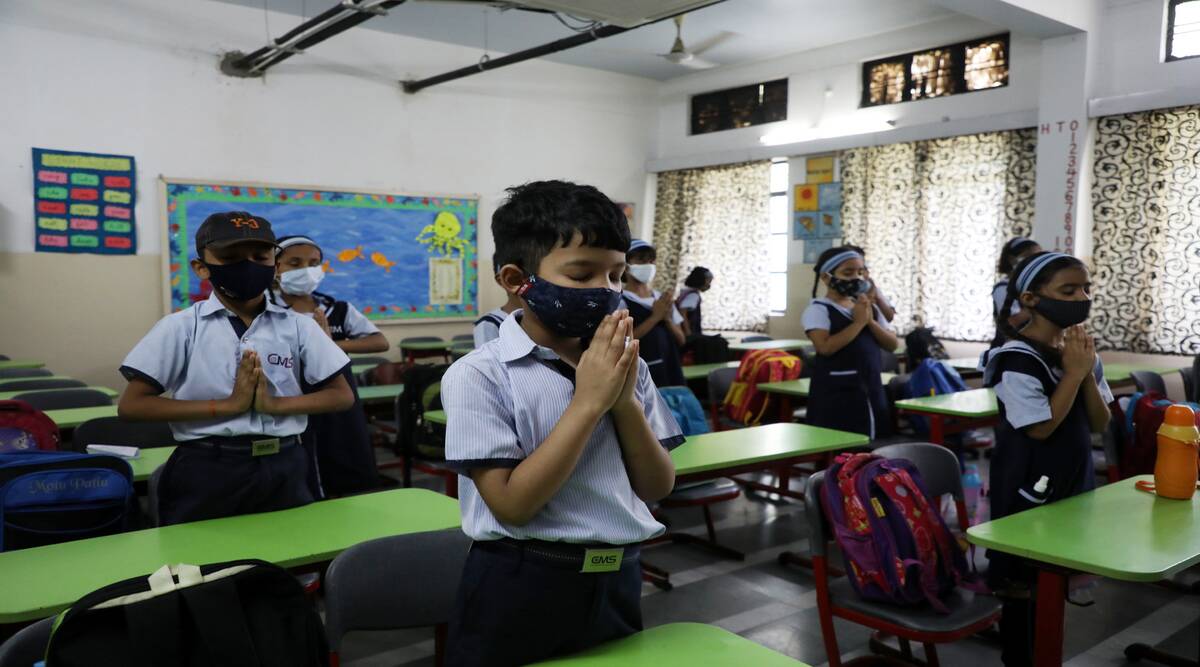 The system operates on the idea that there are a few reasons which are largely responsible for sustained absence from school — child labour, begging, substance abuse, parental incarceration, parental death, disability, medical issues, and getting involved in crime. (File)
The system operates on the idea that there are a few reasons which are largely responsible for sustained absence from school — child labour, begging, substance abuse, parental incarceration, parental death, disability, medical issues, and getting involved in crime. (File) An ‘Early Warning System’ identifying children in potential distress by tracking their school attendance is helping authorities in the capital to intervene and identify solutions to keep them in school.
From the system’s introduction in September 2021 to February 2022, 1,600 children were brought back to school — at least for the immediate time being — after interventions through this tracking, according to records maintained by the Delhi Commission for Protection of Child Rights (DCPCR).
The system operates on the idea that there are a few reasons which are largely responsible for sustained absence from school — child labour, begging, substance abuse, parental incarceration, parental death, disability, medical issues, and getting involved in crime.
The ‘Early Warning System’— designed by the Directorate of Education’s IT department and the DCPCR — is linked to school attendance records. If a child is absent for a day, it sends out an automated message to the child’s guardian stating that the child was absent and “We hope all is well”. If the child continues to be absent for up to four more consecutive days, automated messages are sent out each day with escalating concern, from “We miss your child” to “We are worried about your child”. On the fifth or sixth day, the guardian will receive an IVRS message giving them a helpline number to call if they or the child is in distress. In case of no response, an operator will call them the next day to enquire. Different interventions come into operation depending on the nature of distress in which the child may be.
According to DCPCR chairperson Anurag Kundu, four of the successful interventions were in cases where families were preparing to get their daughters — aged between 15 and 17— married. These parents were counselled to put these plans on hold till the girls complete school.
Among adolescent boys, the most frequent reason for absenteeism has been them being engaged in labour. “The labour cases are the most difficult because we are struggling with what we can do in these cases. Encouraging and counselling is all very well but families need that income at the end of the day… The death of a parent has also been a big cause and that has a close correlation with child labour,” said Kundu.
Of the interventions till February, 109 cases were of children who had started for school from home but had not showed up at school and 96 were of children whose guardians were not aware that schools had reopened for that child’s grade.
Some of the cases had surprisingly simple solutions. “In one case, when the operator called, the parent was upset and said his daughter was studying in a co-educational school, and that she was the only girl in her section which was an uncomfortable experience for her. We contacted the school’s head and asked how such a situation had been created and asked that a few girls from another section be shifted to that one. It was a simple solution but credit doesn’t lie in the solutions but in decoding these micro-problems. That’s the challenge,” said Kundu.
This system has so far been operating within the limitations of the limited school opening with optional physical attendance. With the resumption of completely offline schooling from April 1, the programme has also come into full swing and will be expanded with 25 full-time phone operators from May 1. Another limitation has been in what is supposed to be the last step of responses, which is a home visit in case a family cannot be reached over the phone by an operator. These are supposed to be carried out through School Management Committee members and parent volunteers called school mitras but this action has not kicked off yet.
- The Indian Express website has been rated GREEN for its credibility and trustworthiness by Newsguard, a global service that rates news sources for their journalistic standards.

